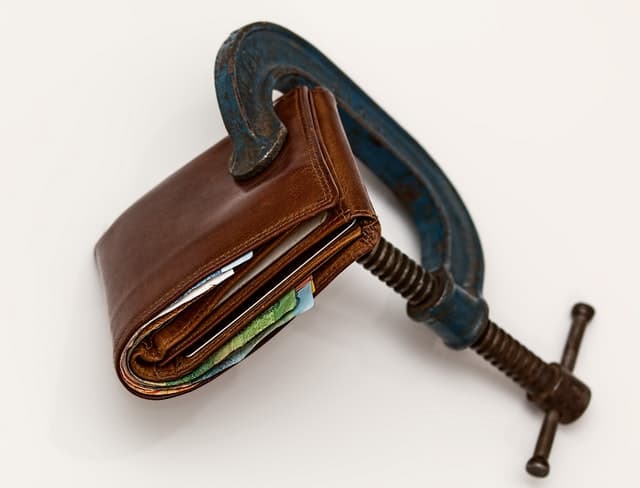If cash flow is low and you’re struggling to make ends meet, you’ve probably considered bankruptcy. Although the notion sounds scary and like it might spell the end for your small business, that’s not always the case. Understanding the fundamentals of bankruptcy and knowing how and when to file for your small business can help you through a difficult time. As a matter of fact, it can get you back on the road to success.
Bankruptcy Basics
At its most basic level, bankruptcy helps you gain control of your finances when your assets and business earnings are not enough to cover your debts. According to Indiana attorney Rowdy G. Williams, it can be a good way to eliminate unsecured debts, including credit card debts or business loans. It cannot be used for other legally obligated debts, such as child support or tax debts.
“Some types of bankruptcy may also eliminate liens on your property,” Williams explains. “Liens are creditors’ rights to take portions of your property to repay a debt. However, bankruptcy can’t always eliminate all these liens, so creditors may still be able to take some of your property before the debt is wiped clean.”
In other words, bankruptcy isn’t always a cure-all move. However, it can be a way to significantly lighten the load.
RELATED ARTICLE: 5 THINGS SMALL BUSINESS OWNERS SHOULD CONSIDER BEFORE APPLYING FOR LOANS
When to Consider Declaring Bankruptcy
Bankruptcy is an option for debt-laden enterprises, but it may not always be the right one. As a small business, it’s sometimes best to simply reorganize funds and assets to accommodate the debt.
If personal assets are not at risk, then there’s often no need to file. You can simply close the doors and walk away without risk to your personal credit. However, organizing your business as a corporation, LLC, or other limited-liability entity won’t always protect your personal assets.
“Businesses that operate as sole proprietorships or partnerships expose their personal assets to greater risks,” explains an article from the Intuit Small Business Blog. “But even when you’ve set up a limited-liability structure for your company, your personal assets may still be in jeopardy, depending on how you run your business.”
Too often, business owners fail to properly separate their personal assets from their businesses, and the courts won’t confirm the separation. The business owner will be liable for company debts, and bankruptcy will be one of the only options.
Types of Business Bankruptcy
There are three types of business bankruptcy in the US. If your business is not in the US, consult with legal experts for the specifics that affect businesses where you are.
The type that matches your needs largely depends on your business structure. Sole proprietors in the US, such as small businesses, may file for Chapter 7, Chapter 11, or Chapter 13.
Chapter 7
This is best for when a business will entirely liquidate its assets and won’t continue. An example of this is when the business is run by a single owner or is based on the owner’s skills. They will not be able to reorganize, so the bankruptcy will simply absolve them of their financial obligations.
Chapter 11
If the business has a future, this is a better option. The company will file a plan of reorganization with the court and their creditors. If approved, your business will follow a payment plan over a certain time period. The business will be allowed to continue as long as the plan is approved and the company can keep up with its payments. Getting approval is very difficult, and many businesses don’t succeed with their filings. As such, it’s the least common type of bankruptcy for small businesses.
Chapter 13
Usually, Chapter 13 is reserved for consumers, but sole proprietorships may also use this option. It also involves applying for a repayment plan with the court so that your business may be allowed to continue. Chapter 13 bankruptcy can be a good option for sole proprietors who have their personal assets mixed in with their business assets. It protects them from losing their home, vehicle, or other personal assets.
How Bankruptcy Will Affect Your Business
As mentioned previously, filing for Chapter 7 bankruptcy means that your business will have to shut down. Unfortunately, the business owner may not escape unscathed in a sole proprietorship structure. It can also affect your personal credit. This can make it difficult for you to open future businesses or take out loans.
It’s a little different if the business is a partnership. “The bankruptcy does not automatically touch the assets of any of the other partners initially,” explains an article from Kabbage. “The trustee will have to sue to liquidate any assets that the remaining partners have.”
With both Chapter 11 and Chapter 13 filings, your business can continue. However, it will make filing taxes and making payments more difficult. You’ll want to consider having an accountant and bankruptcy attorney on retainer to help with the more complicated paperwork.
Bankruptcy may leave a mark on your business, but it doesn’t mean things are over. It can be the solution to overcoming financial burdens and creating a firmer pathway to success.

